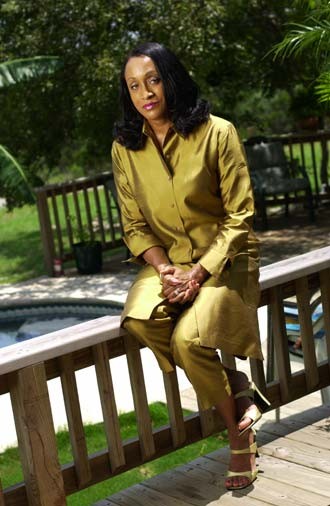|
By Susan Pagani As you read this, thousands of writers hoping to be the next Stephen King or Anne Rice are toiling in obscurity, sending off manuscripts, and waiting on tenterhooks for Random House to ring their bell. What if it doesn't? If the recent wave of books to hit our desk is any indication, many scribes will pay to publish a book through a do-it-yourself, or vanity publisher. Before you turn up your literary nose, consider that Margaret Atwood, Ernest Hemingway, Mark Twain, and Virginia Woolf are among the many authors who self-published early in their careers. Of course, for some publishing is meaningless without being paid for their work. PublishAmerica was founded in 1999 by Willem Meiners and Larry Clobber on that very premise. The two "were book writers themselves, and got very discouraged. They thought they either had to pay to be published or never be published," recounts Miranda Prather, executive director at PublishAmerica. According to its website, PA offers authors a small advance for manuscripts and a sliding-scale royalty that starts at 8 percent. PA sends press releases and review copies, just like a traditional publisher. No agents needed, no fees paid. The books are print-on-demand, and can be found in bookstores nationwide, including major retailers such as Barnes & Noble. Five years later, the maverick publisher appears to be doing well. At a recent PA convention, the company reported that it has published 7,000 writers and sold a half-million books. "I've seen it grow from a really small house, where we didn't have hardly any writers, to where we have an incredible amount of writers submitting to us - we reject 80 percent of everything we receive," says Prather. Feedback on the company's website gushes with writers' gratitude and literary successes. Googling PA, however, reveals an alternate universe of writers' forums clogged with several years' worth of long-winded, visceral rants against the company. Is PA the opportunity of a lifetime, or is it a scam? "They claim to be a traditional publishing house, but they're not. Commercial publishing houses, as I would call them, pay a reasonable advance - measured in thousands of dollars; they pay royalties based on cover price; and they have contracts with reasonable reversion clauses, they don't take things for an ironclad seven years," says Ann Crispin, co-founder of Writer Beware, a writers' advocacy website that follows publishing industry fraud. She is the author of 21 novels, including seven New York Times bestsellers. PA's "small advance" is $1, ceremoniously presented on a certificate as the "first dollar earned." PA bases its royalties not on a book's cover price, on its net profit from a book's sales, which is unusual, and means significantly lower earnings for its writers. For example, Conny Bryceland is the author of three PA titles, Accidental Rewards, Past Imperfections, and Reverse Bonding. She has sold a total of 700 books and made $630. "According to my royalty statements, I received about 90 cents per each. My books were priced at $12.95 for a while, then shot up to $19.95, where they have stayed for the past two years," reports Bryceland. Had PA based her 8 percent return on the cover price, she would have made $1.04 per book at the original price, and $1.60 for each sale when the price increased. That doesn't seem like a lot of money until you multiply it by the half million books PA claims to have published to date. Bryceland's book did exceptionally well by PA standards: 7,000 authors into 500,000 books averages 71 books sold per author. The bulk of Bryceland's sales came from Reverse Bonding, which sold 500 copies. Would it have done better with aggressive marketing? It's hard to say and without a reversion clause, which would release Bryceland from the contract when the book stopped selling, the book is doomed to languish at PA for three more years.
Unhappy PA authors blame low sales on the high price of the books, and the fact that they are most often found on Amazon and Barnesandnoble.com, rather than in "brick and mortar" stores as the website implies. The latter may be due to PA's no-return policy. Most traditional publishers allow bookstores to return books that do not sell. "Bookstores are unwilling to take a chance on unknown authors, and when they hear `print-on-demand`, they are hesitant to order 25 or 30 books that they can't return," says Crispin. "So it's also hard for the writers to get readings and signings - though they do accomplish it." Prather argues that PA authors aren't missing much: "It's a common myth that bookstore placement equals sales. Most buyers have an author they are looking for - it's a rare reader who's out there browsing the shelves for some new writer to read." San Antonio-based Azalea Scott recently published her first book with PA. Messiah, named for her son who died in a gang-related shooting at age 24, is a semi-autobiographical account of her life as a federal agent and a single mother. "I am not a writer, as you can tell if you read the book. I'm more of a storyteller," she confesses. "When my son was murdered, I couldn't sleep at night I was so devastated. So I just started typing out my memories, until I found some peace." Scott eventually found her way to PA, who published her book in a slim volume that sells for $14.95. Unlike many of her colleagues, Scott has been able to garner readings and television and radio publicity, in part because her son was a well-known local leader of the Bloods. She convinced Borders to order copies of her book. "I kind of took the liberty of saying readers could get it at Borders, so they were sort of pushed into it," says Scott, "but the first round they ordered sold just like that. So it worked out." Scott isn't sure how many books she has sold, and she doesn't seem to mind that, in spite of all the interviews, there haven't been any reviews of her book. "I wanted to tell my son's story ... I'm not in this to make money. I just wanted for people to stop looking at my son as this murdering gang member." Perhaps the most mortifying experience for dissatisfied PA authors is the poor quality of their books - not necessarily the writing, but the editing. Although Prather claims that "our editing staff is our largest staff," the PA books that have been sent to the Current for review are rife with spelling, punctuation, and syntax errors. "They publish books exactly as they are submitted," says Bryceland. It wasn't until she received her complimentary copies, she says, that she realized "not a word of editing had been done." That Bryceland allowed me to use her comments was an act of bravery: PA is notoriously stern when it comes to outspoken critical authors. Most complaints are removed from PA message boards, and if the writers are too vociferous they can be banned altogether. PA has challenged Writer Beware with a smear website (www.authorsmarket.net) warning "beware of published authors who are self-crowned writing experts ... always first ask them what genre they write. If it's sci-fi or fantasy, run. They have no clue about what it is to write real-life stories, and how to find them a home." (Writer Beware is maintained by the Science Fiction & Fantasy Writers of America.)
Gilda A. Herrera is a San Antonio-based writer whose first book, Four Dogs and a Bone, is a whimsical mystery about four childhood friends whose love of science leads them to a sinister discovery. Herrera's plot, in its bizarre twists and extra-marital relations, reads like a soap opera logic puzzle: If Tim and Trickland are cousins, and Tim's father has an affair with Traylor's mother, and they have a daughter, who in this group of friends is allowed to date her? Herrera has been relatively happy with her experience at PA. "I have nothing but good things to say about them. Although, there are some things I wish were different." Traditional publishing wisdom says, write the first book and put it away, write the second book and publish. Herrera is on a modified version of this path: "I do believe the second book is 100 percent better than the first. I'm going to make an attempt to get a larger publishing house with it - not that I'm dissatisfied with PublishAmerica, but I'd just like to try my hand." That's all Crispin says she wants. "The main thing that I really want writers to know before signing a contract with PA is, if you have faith in yourself and your book, at least give commercial publishing a try. The worst they can say is no. And for goodness sakes, do some research." That last point is crucial. PA certainly could be more forthright in how they present their services and business model, and everyone would profit if PA were more diligent in their practices, but it is up to prospective authors to do their homework. "Many writers get involved in writing for all the wrong reasons - this is a business of dreams every bit as much as Hollywood or music," Prather warns, "and not everyone is going to be a Stephen King." • By Susan Pagani
|

















